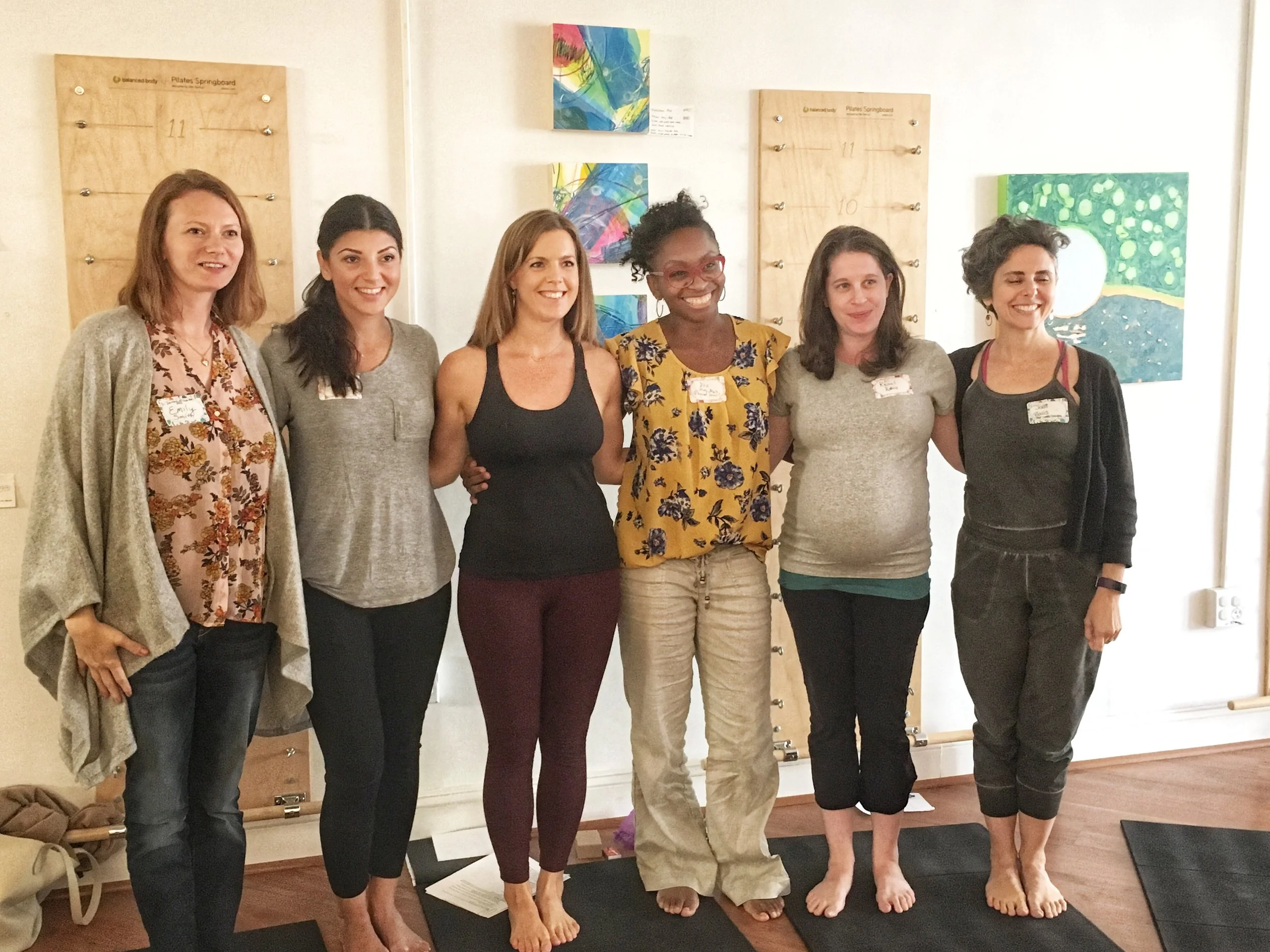
When women have pain for so long, society has said, that’s an expectation for women, and so many women feel guilty about it and don’t want to talk to their providers. Or when they do come into for their 6-week postpartum, or a couple months after, and things still don’t feel good, they can be “poo-pooed” on. The issue is not really addressed to their satisfaction and that can be discouraging.
We were at the “Connect with Your Core” workshop for moms and pregnant women aimed to connect us with our core and feel stronger in our own skin. This workshop led by Frances Darnell of Dynamic Core offered a space for us to be with ourselves, our bodies, and a community of women. We engaged in honest conversations about prenatal and postpartum experiences led by local perinatal professionals.
Going to a physical therapist (PT) after pregnancy and childbirth isn’t standardized care in America, but it absolutely should be.I sat down with three therapists at Body Connect Health & Wellness (where I get treatment) to learn more about why every mom should check in with a pelvic PT at least once after childbirth.
Dr. Tracee Suetsugu, a Honolulu-based OBGYN, shares with us what happens at the postpartum follow up exam and why it’s important to go. She says the transition from pregnancy to the first month postpartum is one of the toughest things women go through. I think it’s safe to say that most of us would agree.
Pregnancy and childbirth really changes our bodies. We literally move in different ways due to our center of gravity shifting, then it suddenly shifts again after the baby is out. For many of us, adjusting to these physical changes affects more than just our bodies.
Engaging your inner unit can help ground us physically and emotionally.
Doctors might give us the green light to exercise 4-6 weeks postpartum, but that often feels too soon. Parts are still jiggling, joints feel loose, muscles chronically ache, and fatigue is overwhelming.
It might take some time to work up to an exercise routine. But there’s a lot we can do to gently wake up some of our muscles. We can gradually and deliberately ease ourselves back into physical activities with these four Pilates exercises that engage our inner unit.







Ever wonder whether to see a physical therapist during and after pregnancy? Folks at Therapydia Denver sat down to ask their in-house pelvic physical therapist (Cami Hatch, DPT) about treatment for pregnant and postpartum women.
Check out their guest post below to learn more about when to get treatment, how to prepare for common postpartum issues, what treatment can look like, and more!